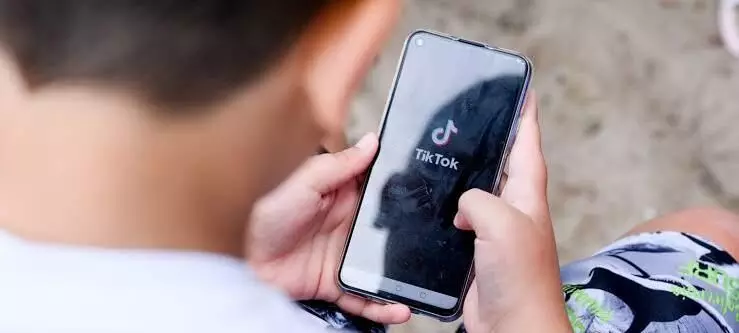
TikTok strengthens protection mechanism for online safety of teens
text_fieldsDubai: In a bid to strengthen safety on the platform, video-sharing app TikTok has launched a global report on young people's engagement with potentially harmful challenges and hoaxes as part of efforts to develop effective responses while it works to enhance its support for teens, parents, and educators.
As per a report by the Gulf News, the company in a statement said that its social networking service had been designed to "advance joy, connection, and inspiration," but added that fostering an environment where creative expression thrived required that it also prioritized safety for the online community, especially its younger members.
The company said it launched a global project a few months ago into this topic, which included a survey of more than 10,000 teens, parents and teachers from Argentina, Australia, Brazil, Germany, Italy, Indonesia, Mexico, the U.K., the U.S. and Vietnam.
It also commissioned an independent safeguarding agency, Praesidio Safeguarding, to write a report detailing the findings and its recommendations.
A panel of 12 leading teen safety experts were additionally asked to review the report and provide their own input.
The report found that there was a high level of exposure to online challenges and teenagers were quite likely to come across all kinds of online changes in their day-to-day lives.
When teens were asked to describe a recent online challenge, 48 percent were considered to be safe, 32 percent included some risk but were still regarded as safe, 14 percent were viewed as risky and dangerous, and 3 percent were described as very dangerous. Only 0.3 percent of the teenagers quizzed said they had taken part in a challenge they thought was really dangerous.
Meanwhile, 46 percent said they wanted "good information on risks more widely" along with "information on what is too far." Receiving good information on risks was also ranked as a top preventative strategy by parents (43 percent) and teachers (42 percent).
Internet hoaxes were shown to have had a negative impact on 31 percent of teens, and of those, 63 percent said it was their mental health that had been affected.
Based on the findings of the report, TikTok was strengthening protection efforts on the platform by removing warning videos. The research indicated that warnings about self-harm hoaxes could impact the well-being of young people, as they often treated the hoax as real.
As a result, the company planned to remove alarmist warnings while allowing conversation that dispelled panic and promoted accurate information.
The platform has created technology that alerts safety teams to sudden increases in violating content linked to hashtags and has now expanded it to capture potentially dangerous behaviour.
TikTok also intends to build on its Safety Center by providing new resources such as those dedicated to online challenges and hoaxes and improving its warning labels to redirect users to the right resources when they search for content related to harmful challenges or hoaxes.
The company said the report was the first step in making "a thoughtful contribution to the safety and safeguarding of families online," adding that it would "continue to explore and implement additional measures on behalf of the community."






















